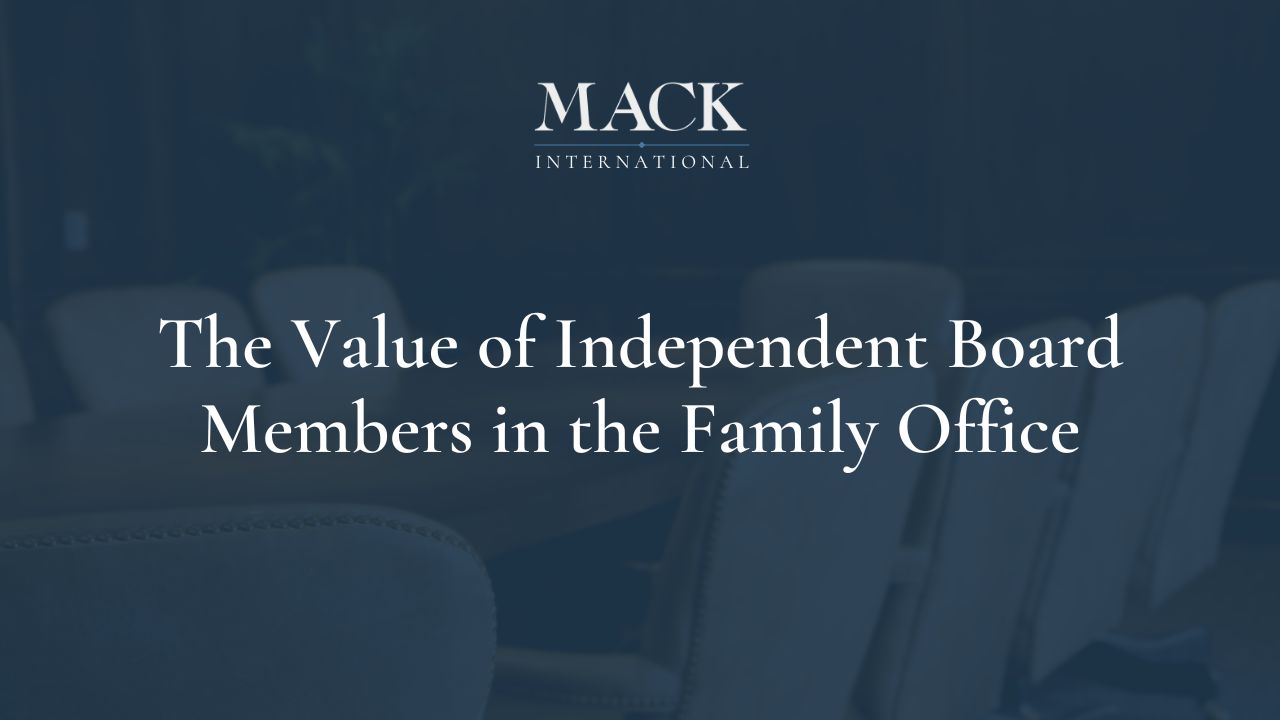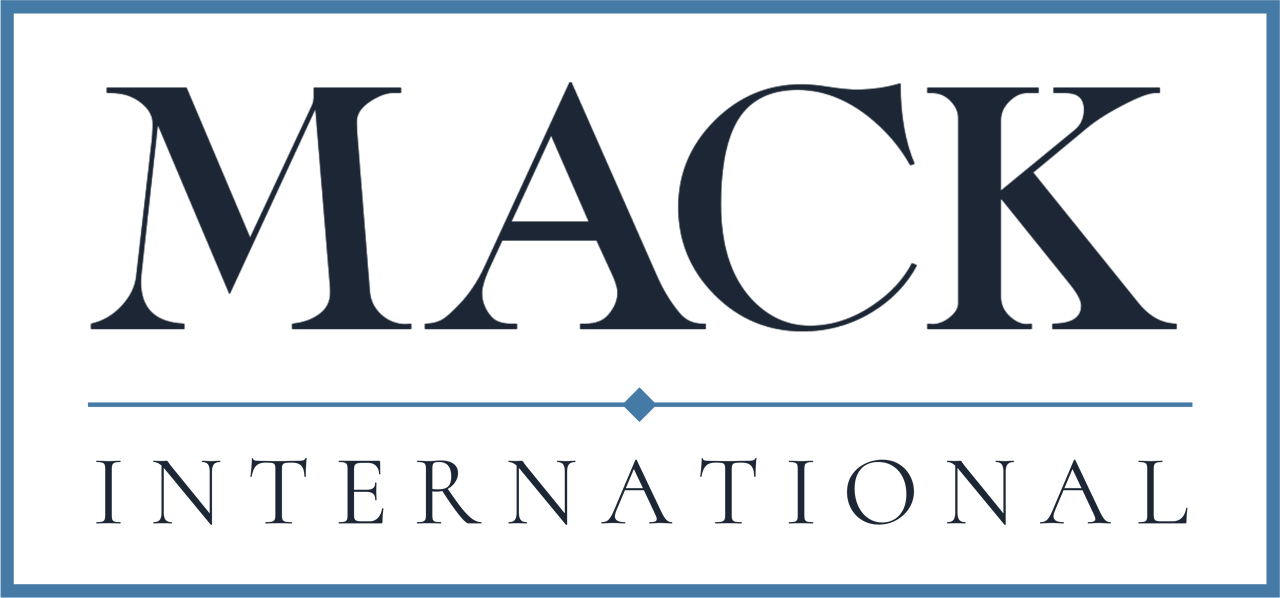The Value of Independent Board Members in the Family Office

Why non-family directors can offer a competitive edge and how to find them
September 17, 2025 —
Families on a journey of professionalization often look to institutional models for best practices and cycle-tested modalities, including well-developed governance structures with independent board members. The role of board members has evolved to one that is very strategic in helping families shape and achieve their long-term objectives.
High-functioning boards are agile, resilient, and future-proof, ensuring family offices are prepared to withstand and respond to unexpected challenges and drive long-term sustainable growth. They need to steward effective governance and delicately balance priorities around both socioemotional wealth and financial capital. The most effective way to achieve this is to involve an independent board member, not just to refocus leadership and maintain objectivity, but to inject new skills and perspectives into the family office and offer a competitive edge through experience sharing.
Independent directors have an instrumental role to play in family office governance. They can find blind spots, shortfalls, and knowledge gaps, and serve as impartial members in search committees, able to objectively evaluate the performance of executives and mentor the rising generation. They can be valuable to the family’s succession planning process to ensure smooth transitions in leadership and critically, bring a new lens and expertise to the boardroom – helping a family to unlock strategic opportunities, navigate turbulent times, and achieve goals.
The question is, how do you find them?
The search for a successful independent director
Families are well-advised to take time to think about who their future executive team would like to see across the table during the hiring process. There is a seismic shift taking place in family office leadership demographics, and family offices should be actively bringing younger directors into their search, governance, and investment committees to attract new leadership. Your next leaders need to see stakeholders across the table with whom they can identify for the long term.
The most successful family office boards boast diversity of thought, perspective, and expertise. Board members can bring new lenses and life experiences that help families navigate the current financial, business, and geopolitical environment and effectively prepare for the future, be it succession or scenario planning for opportunities, challenges, or black swan events.
Independent directors are not just vital to the quality of thinking and the depth of discussion in the boardroom. They can bring layers of expertise that help families address wide-ranging objectives, from spearheading digital transformation and formalizing governance structures to diversifying investment portfolios and engaging the next generation. The value of independent directors can be critical to family offices achieving their goals, and care should be taken to look for those who have the requisite expertise and track record of achievement within other board settings. For example, an entrepreneur profile may be suitable for a family looking to innovate and embark on a digital transformation, where an analytical CFO profile might best suit a family hoping to become more performance-focused.
In any event, it is important that before the search process begins, families are clear about their long-term vision, goals, and objectives. They must also define their ideal board director based on the expertise and qualifications needed to complement the existing board to better enable the family to successfully achieve their objectives. As always, personal characteristics and attributes of the new board member must also be aligned to ensure culture fit.
The ambidextrous director
Research has shown the lengths to which families go in order to maintain objectivity and professionalism in the boardroom. Examples include having a formal board room used exclusively for meetings, not to be confused with a family dining room, for instance, that has contextual markers of the home. Including independent directors on the family board promotes a higher level of objectivity and neutrality, which can help the family navigate the overlap between family and business systems that can often challenge decision-making.
This is not to say, however, that governance mechanisms should not remain family-centric. This is imperative for preserving socioemotional wealth and keeping family values and goals at the heart of decision-making. The highest-performing family office boards comprise a mix of family and external directors who can together reframe discussions to be more forward-looking, strategic, and performance-focused.
To be a successful independent director on a family board, leaders must be ambidextrous. On one hand, they must respect and align with the values and long-term objectives of the family, prioritizing the socioemotional wealth of the family above all else. On the other hand, they must question conventional wisdom, mitigate groupthink, and guide a family board in making strategic decisions they may have otherwise failed to reach.

Social Media Links
Office Locations
Nashville, TN
Dallas, TX
New York, NY
Chicago, IL

